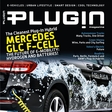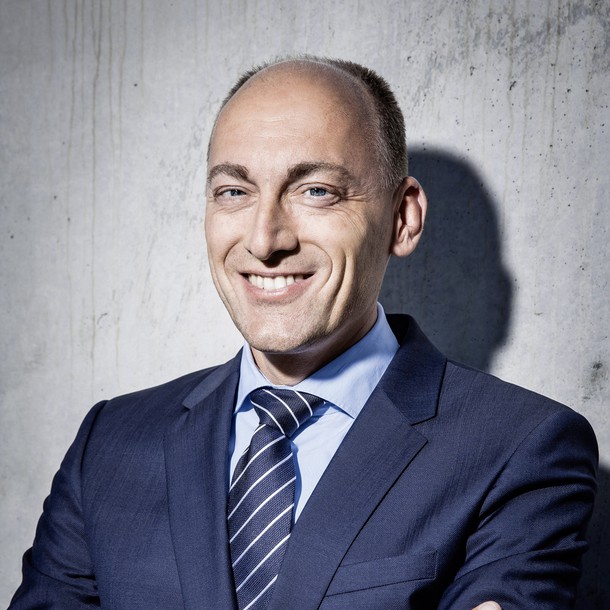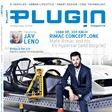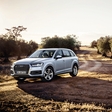
This is not so, and will be even less so starting year, explains Dr. Stefan Knirsch, a Member of the Board of Management for Technical Development at Audi. The next steps will be big.
We have seen a lot of development of autonomous cars. Audi has taken some big steps in this area, including racing and drifting autonomously. So when will we see an autnomous Audi on the streets as a series model?
Yes, of course, I think you are very well aware that, since 2009, we started with our first autonomous driving activites, with our first Audi TT on Salt Lake in the US driving autonomously in 2011. We went out to the Pikes Peak race with the Audi TT driving fully autonomously in 2014. We've been on the race track with our autonomous RS5, and racetrack driving is very demanding, on the technological side. In 2015, we made the tour all the way from San Francisco to Las Vegas, 800 kilometers, fully autonomous. We've been in Shanghai, in the city, and that is also very demanding, as you have multiple lanes, pedestrians, bikes crossing, typical dense city traffic. This is very, very difficult. So I think we showed that we are able to handle this technology. And a precise answer to your question: in 2017, you will see the first Audi as the first car that is really able to drive autonomously in different situations.
Is this a new model?
Yes, the new A8. It will be the first one to show real level 3 autonomous driving. Currently, we and our competitors are on level 2, which means assisted driving, so the driver still is responsible for what he and the car is doing. On level 3, we are responsible for the car's actions.
Where will it be able to drive autonomously?
First we are starting on the highway, in traffic jam situations on the highway. This will be the first step, so it will be capable of fully autonomous driving at speeds up to 60, 65 km/h. And you will be allowed by law then to do different things – look at your emails, read ... The car will tell you when it is responsible for doing the job, and once the car sees that it can't cope with a situation, then it hands over control, and you will have a certain amount of time – around ten seconds – before you should take over control. This take-over will be very clear, and we are making this in a way that people can understand. We are learning from the aviation industry, because some accidents in the flight industry have happened because of so-called confusion, "mode confusion." The pilots didn't know if the autopilot is on, or do they have to control the plane manually, so we are learning from aviation how to implement this sort of automation.
So the law is not a restriction in EU?
Currently, we have restrictions in Europe. The regulation right now says that the steering can only be operated automatically under 10 km/h. This is the current law, from the Vienna convention. And most likely this will be changed and adapted to this new system.
In time to use the new car?
We are confident that it will be in time.
So what should be the next steps regarding traffic jams on the highway?
We are thinking of and developing many things, and we will show them once we are ready. But the development will definitely happen and go on to more complicated situations.
What about plugin hybrid and electric technology? Do you think plugin hybrids are really necessary for the future, or just a short-term solution?
This is a question of cost and technology, and a question of infrastructure. We believe we need the plugin hybrids to comply with the world-wide regulations, in terms of CO2 fleet emissions. But we also believe that this will be a bridging technology. There will come a point, I can't tell you exactly when, 2020, 2022, 2023, 2024... We don't know exactly, but one day the system will change. Then you won't have any problem with infrastructure, and have all the charging stations everywhere you need them. And what we've learned from the early adopters, especially the US markets, is that most of the time they will charge their car overnight at their home. So they need to have the fast charging, the superfast charging systems along the highways, freeways, but you don't need a very dense infrastructure in the city, for the starting point.
You know that, in 2018, we will bring out our first fully-electric car on the road that is good for long-distance travel. The range will be 500 kilometers and more. We are currently working on that. It's more or less the shape of the hydrogen concept car H-tron from the Detroit and Geneva motorshows.
So will it be a Tesla Model X competitor?
It will definitely be a competitor, at least to the Model X. And it will be an Audi. With all the quality and all the things our brand stands for.
And the price comparison?
It will be less expensive.
What about the cost of batteries?
They are decreasing. The power-to-weight ratio is getting better. The volume-to-power ratio is getting better. And the cost-to-power ratio is also getting better and better.
So why don't we see that reflected in the prices of the cars?
You will see it in the consumer prices, once we begin offering the cars.
But so far?
So far we are still high, because the volume is small. Frankly spoken, look at the better electric vehicles that are currently on the road, so it's quite a small volume, but we clearly see that the sale supplier, the battery suppliers are jumping on the new technology, because this, also for them, seems to be a huge business opportunity and, at this very moment, millions of engineers are working on this technology worldwide.

What about fuel cells?
We moved the center of excellence in the VW group to Audi for fuel cells, so we were working on the fuel cell technology. I think it was 2014 in LA, when we showed one of our cars, An A7 with fuel cells, which is quite convincing when you drive the car. We are currently working on the next generation, so we will be ready for the start of production, once infrastructure and customer demand is there ...
But do you need fuel cells and hydrogen at all? With the development of battery electric cars?
We don't have a crystal ball to predict the future. Sometimes the direction the market will go in is not very clear. From a technological point of view, we must be careful with the battery-electric vehicles, not to do jump to a one-sided solution because, for example in the US, discussions are starting that say battery-electric cars in the future will not be a zero-emission vehicle, but they will take into account the upstream emissions, so the current energy, the mix of current energy used for charging, and then you could easily see CO2 emissions defined as not a zero, but maybe a 30 or 40 g, depending on local eletricity production mix. So the hydrogen can be generated with only renewable electricity. We are able to produce hydrogen with zero impact on CO2 emissions already today. We are still working and still believe that hydrogen may be also an alternative for the future, or it will be a second concept. Today we are talking about gas, diesel engines and so on, and maybe in the future we will talk about hydrogen, gas-electric, battery-electric vehicles.
You've been at the forefront of producing renewable and synthetic fuels. What is the situation now for the renewable synthetic gasoline vehicles?
We are still working on that. We have two or three partners worldwide. We will make some announcement soon, I think. We are still working on this, to show what can be done. A plugin hybrid with renewable fuel for internal combustion. But I don't know if it's really an alternative, because to produce these fuels in mass production in big volumes...
"In 2015, we made the drive all the way from San Francisco to Las Vegas, 800 kilometers fully-autonomous."
If you look at the plugin hybrid models of Audi, comapared to some competitors, you seem to be slower at implementing these technologies into your model range. Will this now accelerate, due to "dieselgate," or are you waiting for some other developments?
Let's wait and see. I think we are the first to market in Europe a premium brand with full battery-electric vehicles, some more to follow, some other concepts to follow, and with the plugin hybrids you will see, each and every year from now on, a new one coming, so all the new model lines will have a plugin hybrid. But as I mentioned, this will be bridging technology, of course you have to offer this. And you know that, in Audi, we have some advantages in the electric driving range, so all of our new plugin hybrids will have 50 kilometers minimum as their electric driving range. As they do today. And also this is different from our competitors.
And you will probably stick to gasoline hybrids, not diesel hybrids, after "dieselgate?"
We had a diesel hybrid at the Geneva motorshow. This will certainly be a diesel in the EU market. And this will be an SUV, you can drive electrically in the city, and if you're long range, you have the very economic diesel engine on board, so we believe people will love this concept, too. So we try to combine the best of the two worlds. And you know people that are driving these SUV models in Europe, they clearly prefer the diesel, because it's much more efficient. Why should this change with a plugin hybrid?
More and more cars, Audi's included, have bigger touchscreens, and fewer physical buttons. Do you think, from a safety point of view, the new generation haptic touchscreens that you plan to use in future interiors can be equal to normal buttons and controlers?
Yes, they will be very intuitive, of course we still have some hard keys, even if they are soft, they appear like hard keys. Some functions must be in the same position every time, of course. You will have all the flexibility you are used to with your smartphones – you can move the apps, moving them on the main screen, all these things will be there. So we are combining the existing world with a high level of quality at Audi, setting up a new world of digitalization, easy of use and seamless mobility.
When we were talking about connectivity, of everything being conencted, how about the security of it?
It's the highest priority at Audi. That's one of the reasons we bougth Nokia Here, together with BMW and Mercedes Benz. It's the highest priority for us to fulfill each and every standard, especially our own standards. And we clearly acknowledge that the data belongs to the customer, and we will protect the data of the customer. That's exactly why we don't want to have the Googles and the Apples of this world getting into the car and taking the data out. We will make sure this data belongs to the customer, we will ask the customer if we want to do something with the data, if they want to have some services based on the data, but we won't open this. And of course there will be an inner circle in the car, when it comes to safety systems, where no one is allowed to come in.


